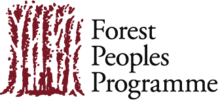
Developing self-esteem: A cultural awareness workshop seeks to inspire a new generation of Baka leaders

"If there is one person who is happy to be here it must be me, because of my pregnancy. In the past, Baka women used to give birth only in the forest. Although my due date is not around the corner, being in this forest is so healthy for my baby. Our tradition is who we are, I am alive today because of Baka knowledge of traditional medicine and the healing powers of the forest. I pledge to continue fighting for our culture and way of life." - Jeanine, Assok village
Keta is the Baka word for 'dream'. It is also the name of a project run by Forest Peoples Programme and Okani in Cameroon, which aims to strengthen the participation of indigenous forest communities in sustainable natural resource management, and to improve the promotion, protection and defence of their human rights.
Within this framework, a series of leadership workshops have been designed with Baka communities, to inspire a new generation of dynamic Baka leaders in the Djoum-Mintom-Ngoyla forest zone. The first pilot workshops took place in September 2020, in the form of two, five-day residential meetings, held at Okani’s newly opened Centre for Indigenous Peoples Learning at Ntam, East Region of Cameroon. Each session saw the participation of 10 community members (five women and five men) and the sessions were run in a participatory and culturally appropriate way.
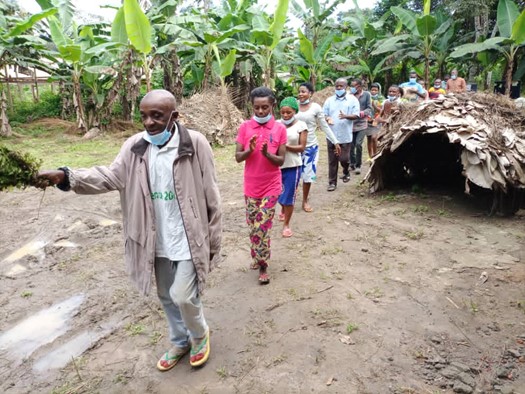
The content, methodology and tools of the meetings were developed with the additional expertise of Samuel Nnah Ndobe, who also facilitated the sessions. The methodology used is geared at inciting discussions amongst participants about themselves, their cultural identity and how their future and wellbeing is reliant upon this identity. It focuses on cultural specificity to develop self-esteem. The rationale for this methodology is that reviving cultural belonging and embracing Baka identity will build self-confidence amongst participants, which can be contagious at community level, and thus develop a new form of leadership, one geared at respecting the culture of forest peoples and honouring forest gods.
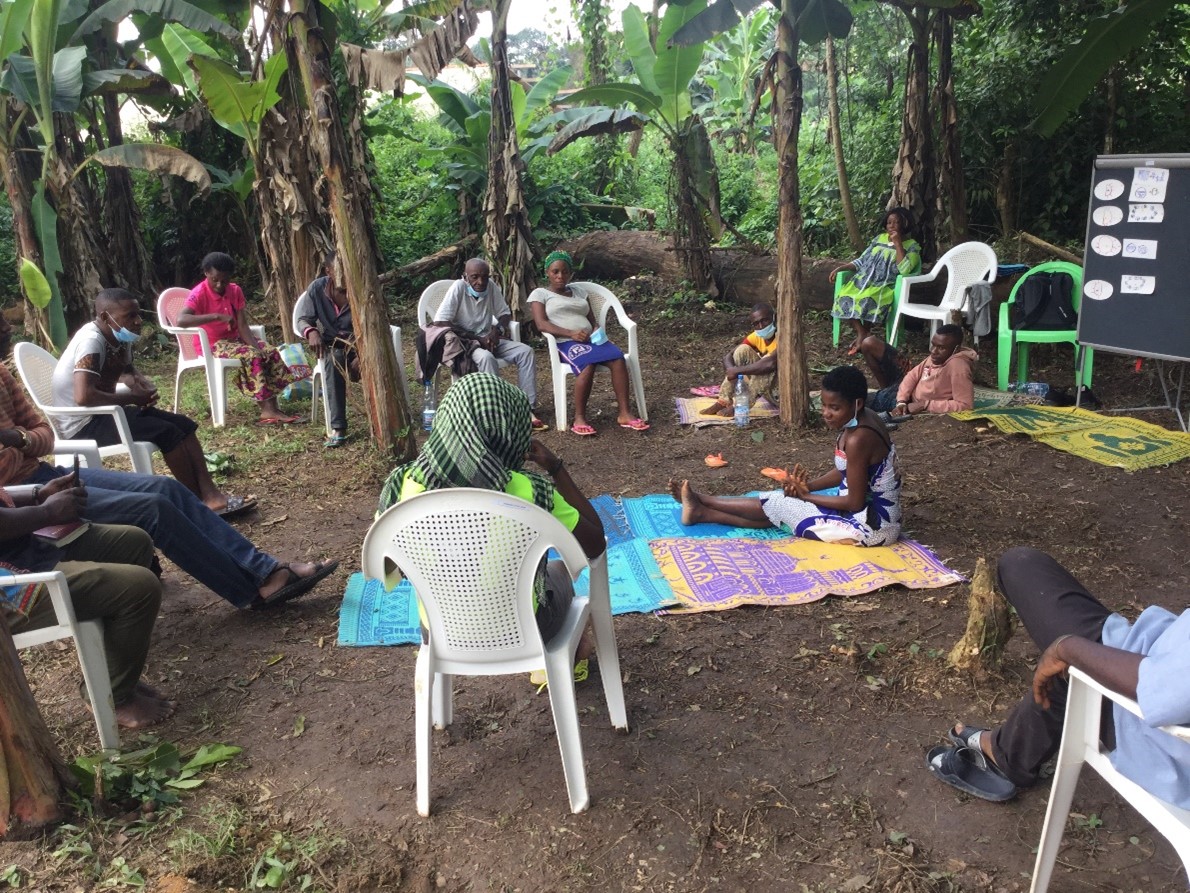
Training content and activities
This leadership training was designed to conform with the acephalous nature of the Baka culture, in which there are no hierarchies but knowledge holders and cultural guides. Leadership within Baka communities is shared: the nganga are the go-to guys when it comes to knowledge on traditional medicine; the kobos are usually older people believed to have “wisdom” and are often consulted on various issues within communities. The training focussed on participants’ self-esteem. Seeking to make leaders who will render leadership contagious according to their abilities and their environment. Discussions were focussed more on the Baka identity, way of life and their intra and extra relationships, for example viz-a-viz dominant neighbouring “Bantu” communities.
Invocations and meditations
"When I was in the forest, I had a revelation, I heard a voice talking to me. This voice insisted on the necessity for us to safeguard our culture, especially our language. Today, it is difficult to hear a Baka speak without mixing it up with the local Bantu language. This is not helpful to us." - Mondenga Bicken Marc, Ndimako village
One kobo (Baka elder) participated at each workshop, leading daily meditations and cultural invocations in the forest. The invocations and prayers were aimed at blessing the meeting grounds, the participants, and putting the daily proceedings in the hands of Komba (god) [1]. As such, after every morning prayer and invocation, participants were only allowed to step into the meeting’s sanctuary without shoes on. Participants’ sitting positions were arranged in a circle and the centre of that circle was called sanctuary, a space for Komba. The morning meditations permitted participants start each day with a moment with their ancestors, to relate to nature. In this exercise, participants spent time in nearby forests, meditating, and afterwards participants had a chance to share their forest experiences with the rest of the group.
Who we are and what do others think about us?
"They compare us to monkeys. When I first left my village, some people wanted to know if I had a tail. My ex-boyfriend, who is Ewondo, used to refer to me as an extra-terrestrial person." - Laurentine, Assok village
This segment gave a space to participants to talk about themselves, their families, why they think the Baka are different from other peoples, and what other peoples (especially their Bantu neighbours) think about them. It was all about boosting self-confidence, talking about their fears but most importantly talking about what makes them very proud as Baka.
Participants talked about the parents, grandparents, their Ye (a heritage disposition which usually determines family dynamics in a village) - a man is not supposed to marry a woman from the same Ye. Participants then discussed why they were different from others. The points that came out these discussions were mostly about Baka’s unique attachment to the forest, their timidity, their knowledge of the forest, including their forest survival skills, and their generally smaller physique that put them apart from others.
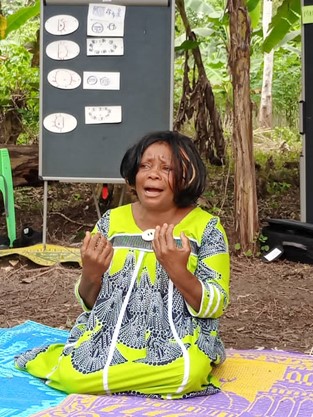
Resource mapping and threats to livelihood
In this exercise, participants developed a perception map, articulating their knowledge of their surrounding environment and forest. They mapped out details of resources they depend on, attributed qualities to these resources, threats to these resources and factors preventing them from fully enjoying these resources.
The maps demonstrate the scope of the communities’ territories and illustrate the significance and importance of the territories and associated resources to the lives of local Baka communities around the Ngoyla Wildlife Reserve. The good thing about participatory mapping is that it enables collaborative discussions within and across groups about solutions to problems that are felt locally but often driven externally.
After the maps were developed, participants then had discussions on the specific threats they face in the forest. the nature of the threats, the perpetrators, and how it has affected the lives of Baka communities. The main threats identified in these forests are from the Ngoyla Reserve restrictions and interactions with eco-guards, the Mintom cement works, agricultural expansion by individual Bantu farmers, poaching, and illegal logging. These discussions on forest usage and analysis of the threats were facilitated by Samuel Nnah. Participants discussed the necessity for Baka communities to be united against these common threats to defend their rights; the importance of having community discussions when such threats arise; the role community leaders can play in such instances; and most importantly, what role cultural identity and attachment to the forest plays in decision-making instances, both intra and extra community decision-making circles.
Commitments
The last day of the training was meant for summarising the entire week. Participants discussed what they had learnt from the training and how they believe it would help boost their self-esteem. Participants also made commitments for the future and how they plan to advance the knowledge they have gotten from the training.
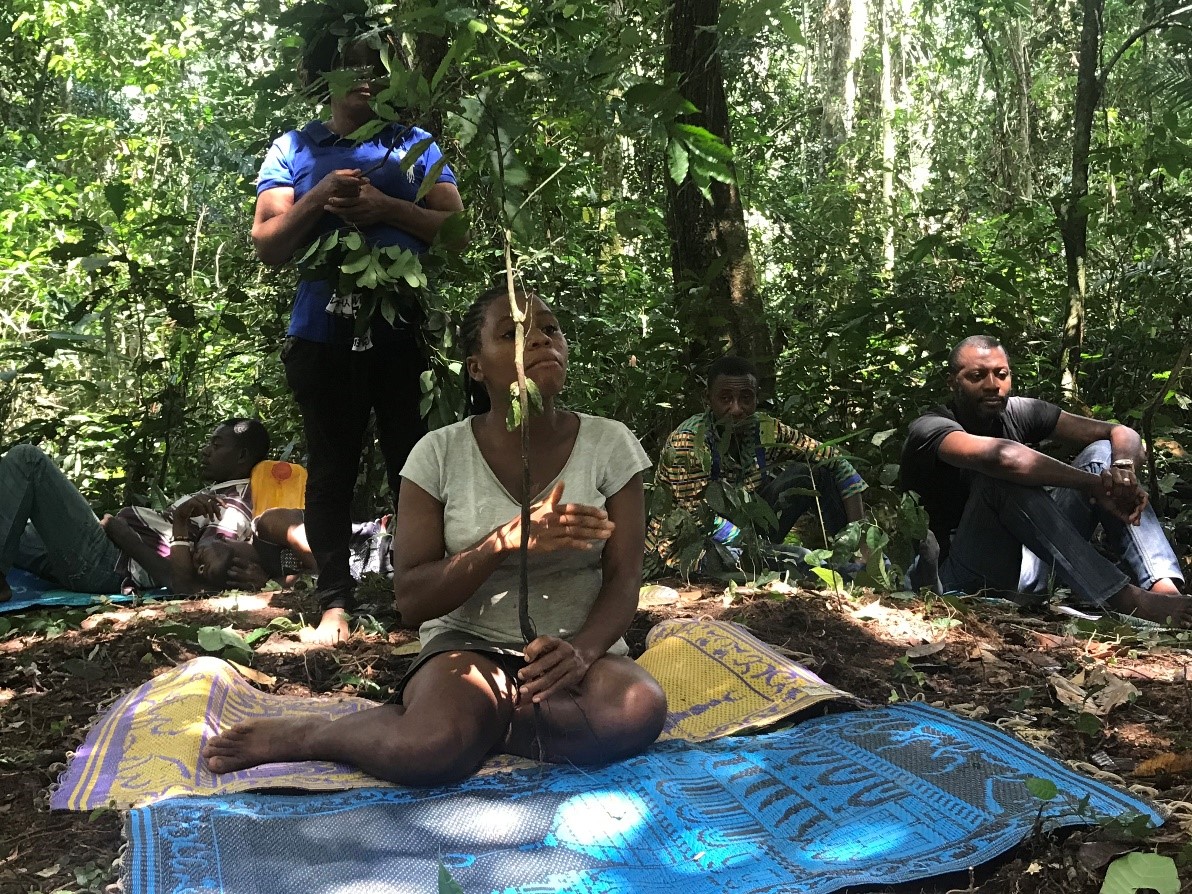
"When I go back to the village, I hope to spread to others this courage I have acquired this week. The courage to speak out on issues facing us. I am asking the gods to help me mobilise my fellow villagers so we can talk about our forest, our customs and how losing this culture will mean losing our livelihood and thus our lives." - Laurentine, Zoulabot village
"This week has taken us back to our roots. I will encourage my mates to not ignore our culture. Our self-esteem depends on our links to our traditions. I implore ‘Komba’ to give us the strength necessary to confront these threats to our forest." - Alino, Akom village
-----
[1] Komba is God in Baka. Superior to ejengi, which is a forest spirit.

Overview
- Resource Type:
- News
- Publication date:
- 17 dezembro 2020
- Region:
- Cameroon
- Programmes:
- Culture and Knowledge Territorial Governance
- Partners:
- Association OKANI
